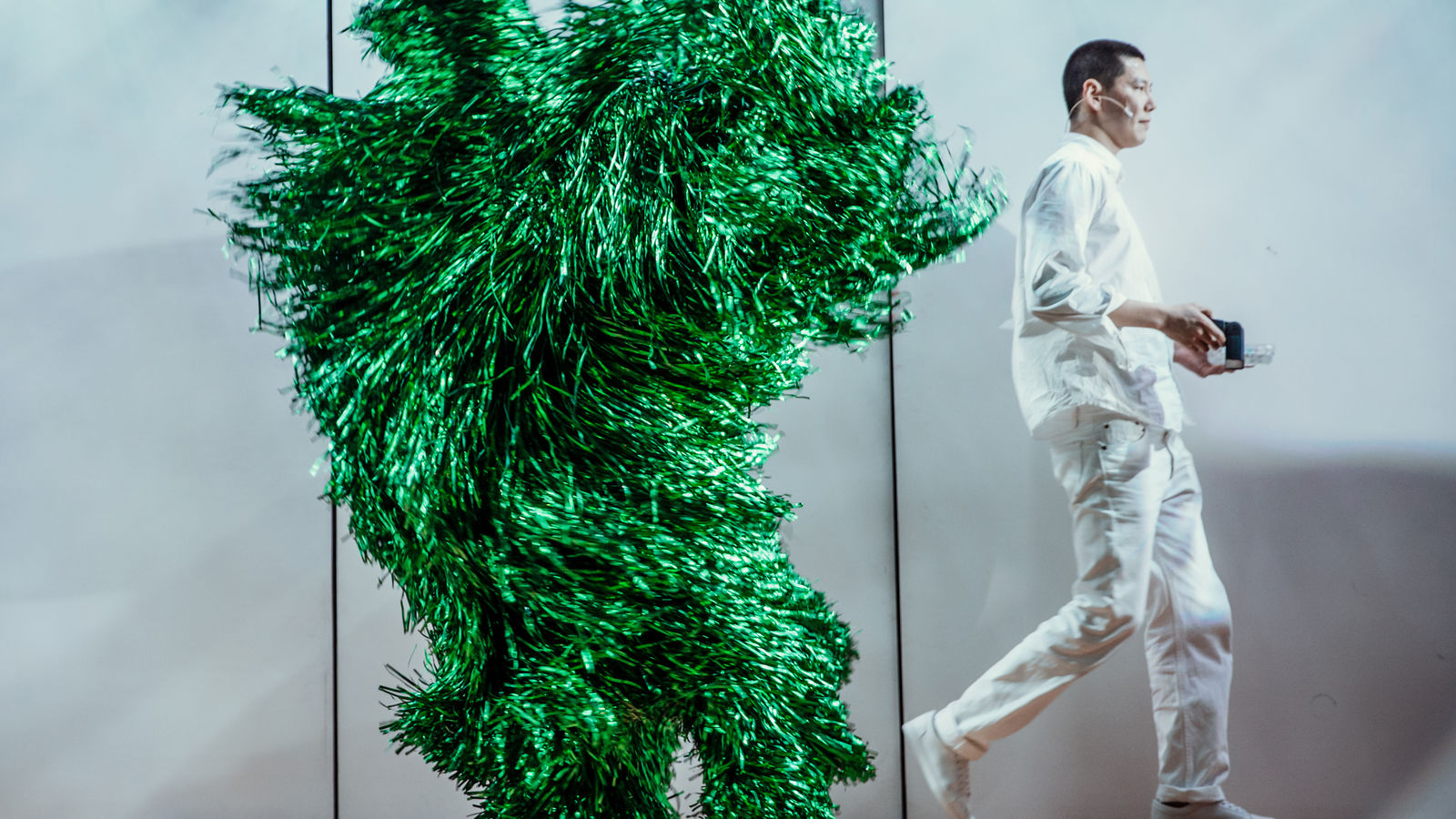
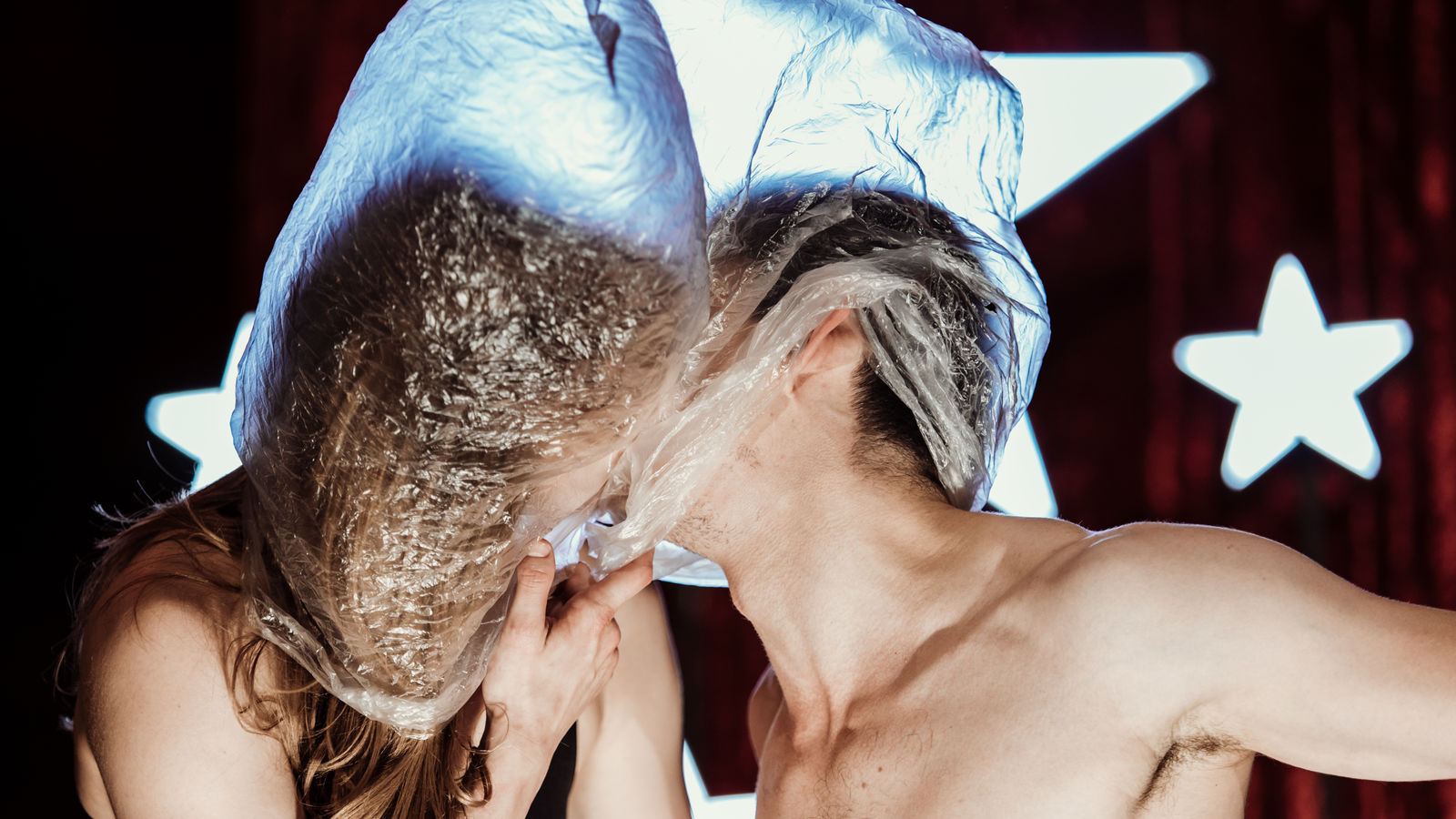
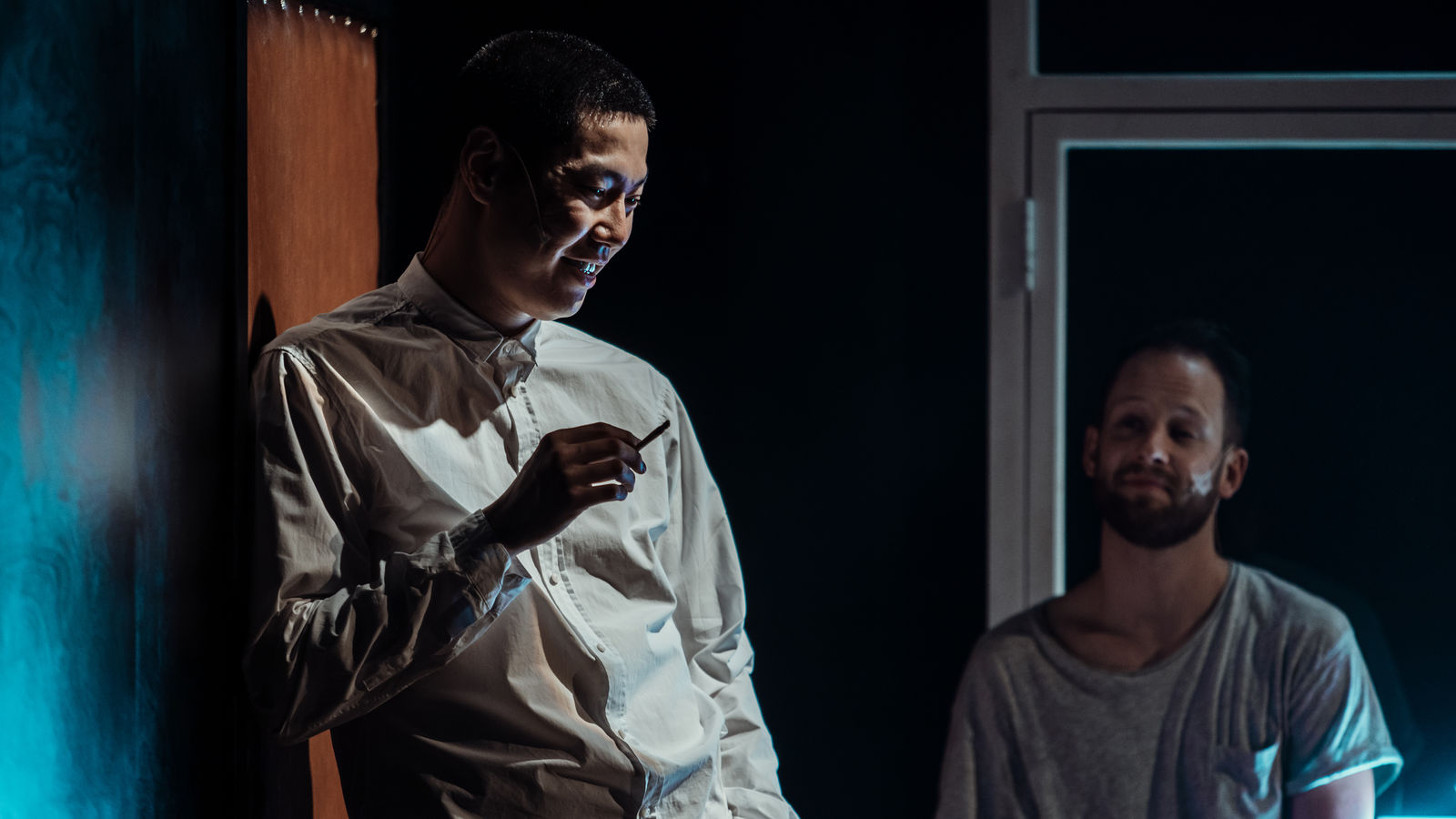
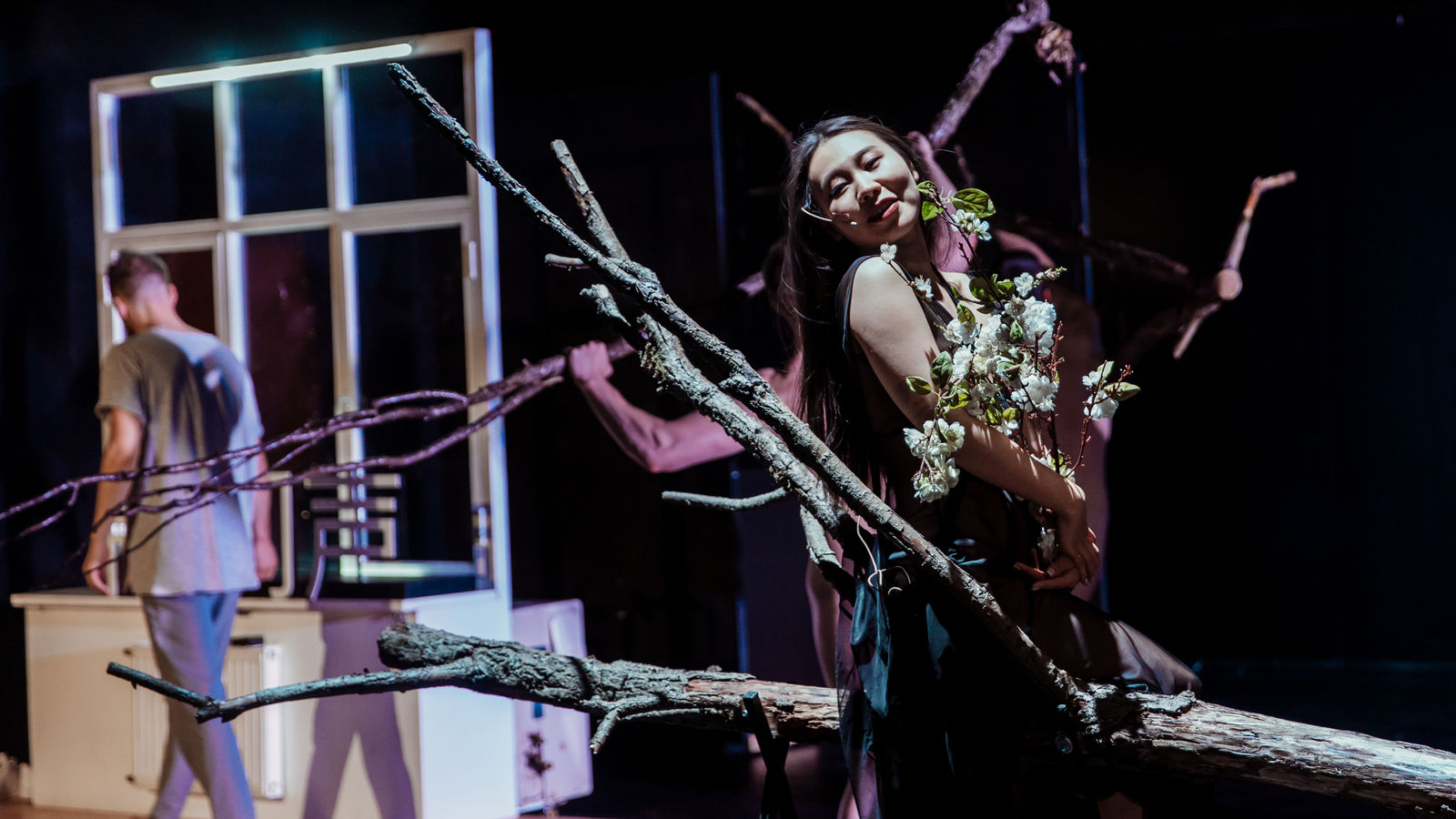
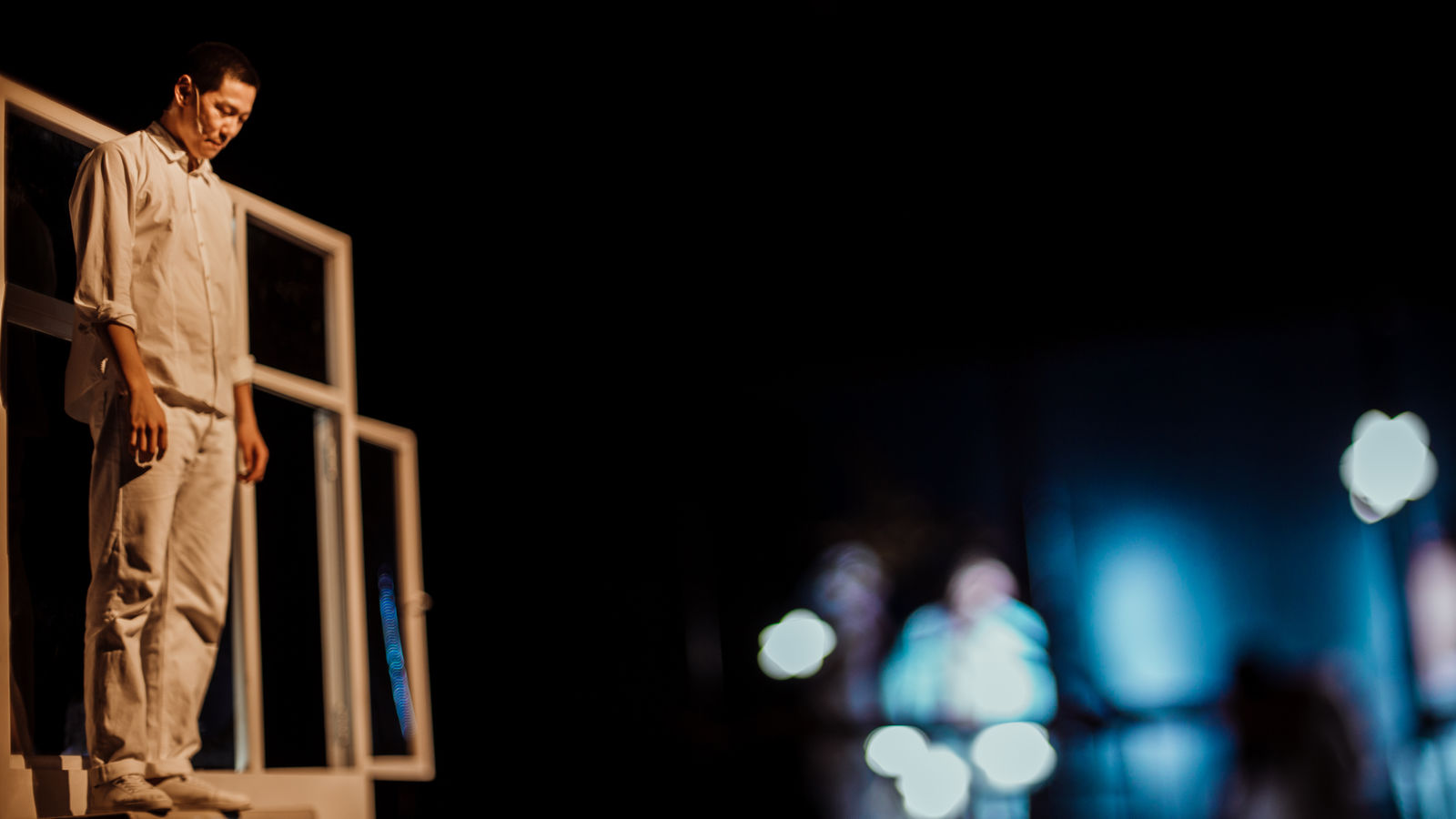
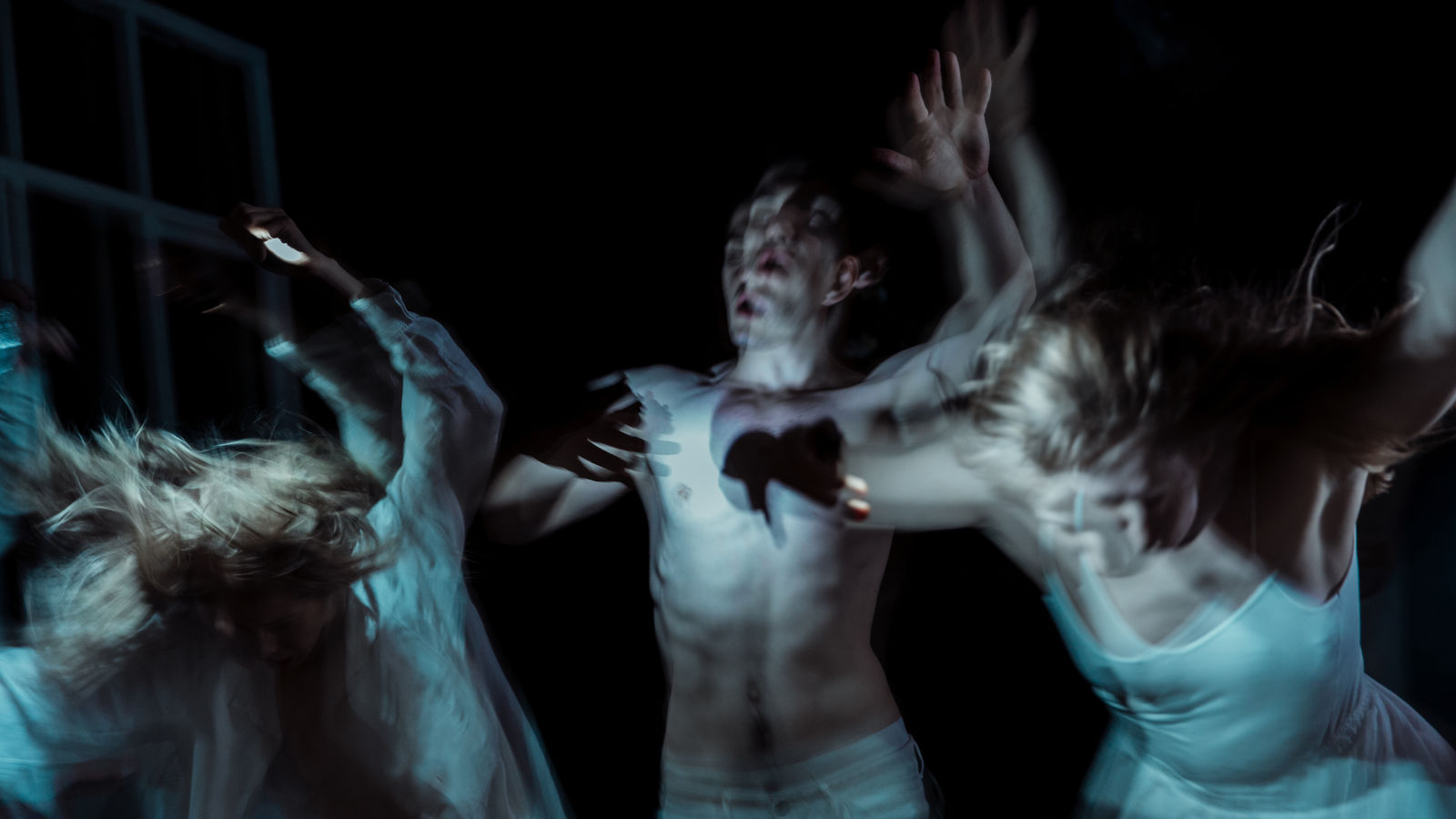
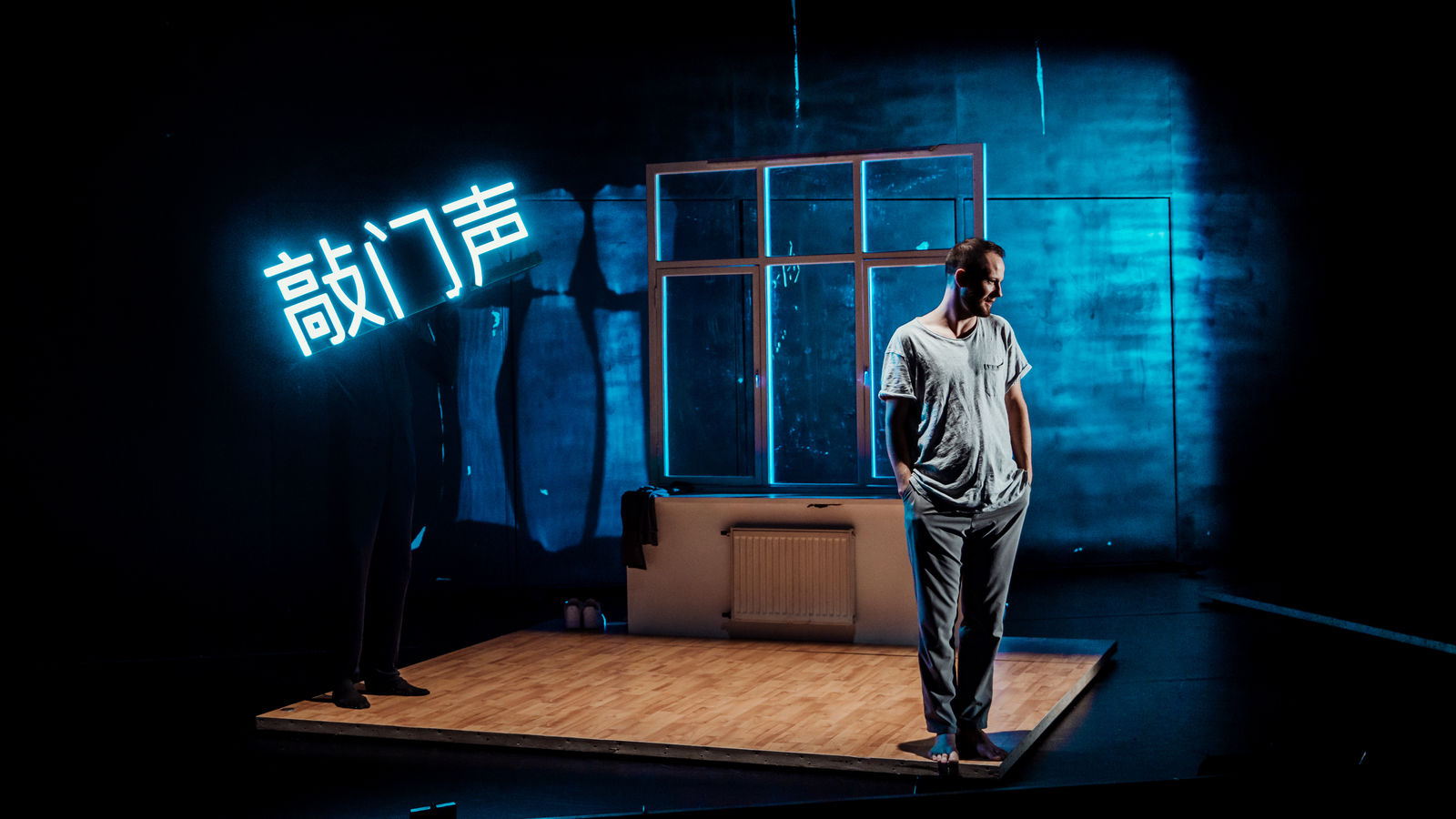
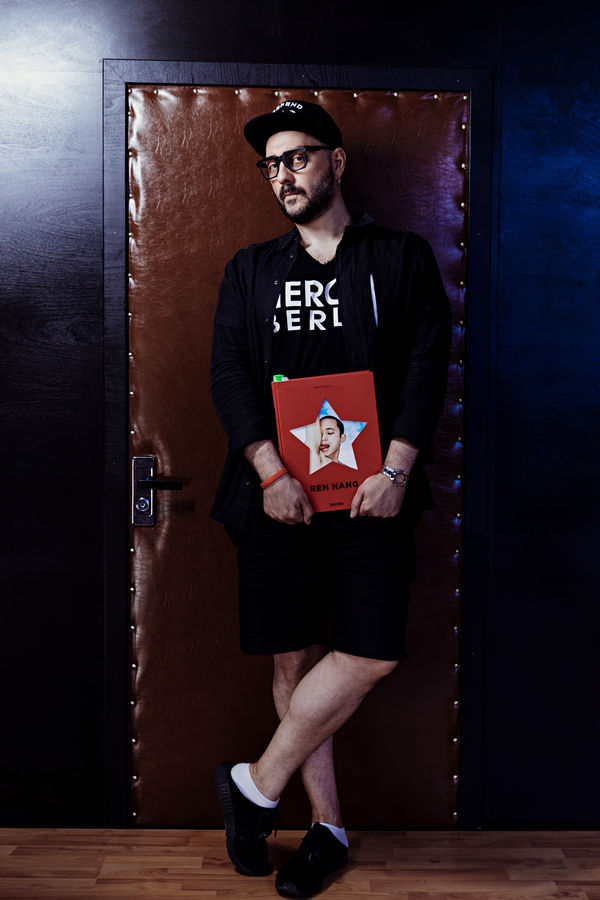
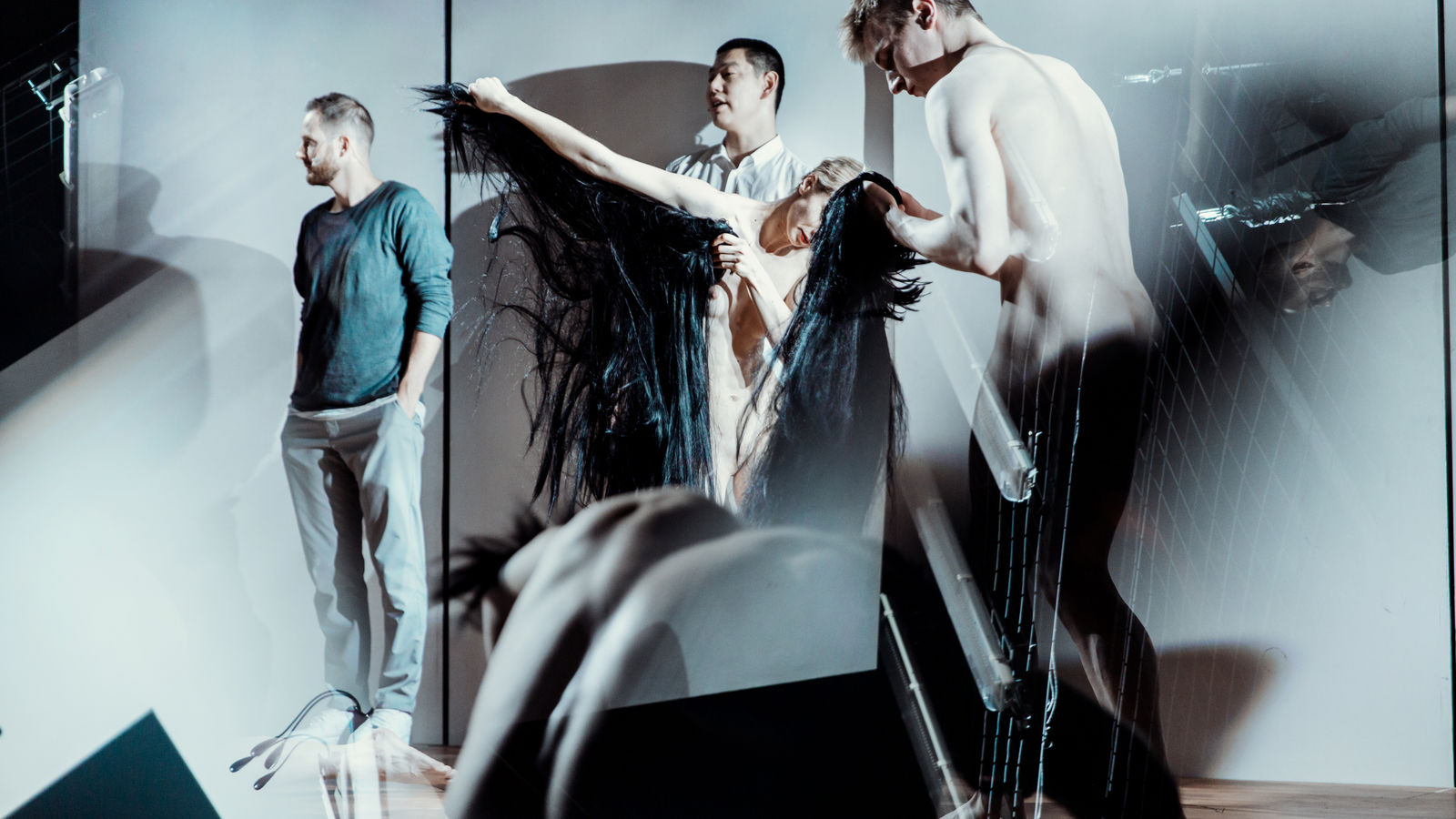
Two Absent Artists at the Schaubühne
An Interview with Kirill Serebrennikov about »Outside«
by Joseph Pearson
27 September 2021
Two artists working in authoritarian regimes, two who have paid a price for their work: the Russian director Kirill Serebrennikov and Chinese photographer Ren Hang. At the 2021 FIND festival at Berlin’s Schaubühne, they cross paths but neither is present. Serebrennikov was put under house arrest in Moscow in 2017, the year of Ren Hang’s suicide in Beijing.
Convicted in June 2020 for ‘embezzlement’, as a reprisal for his politicised theatre and film, Serebrennikov was also banned from leaving Russia for three years as part of his sentence. In February 2021, he was forced out from his position as the artistic director of the Gogol-Center, which he had steered for eight years. The order likely originated with Russia’s security services.
I first met the Russian director during FIND#14, when his »Idiots«, based on Lars von Trier’s film, came to Berlin. He was fiercely critical of the climate in Russian, telling me then: »It’s quite clear that violence is part of Russia’s mental climate nowadays. Our idiots are more tragic in this sense. In today’s Russia, to be an idiot is very very very dangerous. And this danger is deadly.« Seven years later, his production of »Outside« arrives at the festival without its director.
»Outside« is a reflection on the images and poetry of Ren Hang’s work, known for its lush, playful, genderqueer depictions of the naked body. Hang ran afoul of Chinese censorship laws; one can speculate on the extent to which political bullying, as well as depression, brought him to suicide at the age of 29. Berlin’s C/O gallery exhibited a retrospective of his work just before the pandemic (Love, December 2019-February 2020). Seeing Hang’s contorted bodies, set against public spaces – parks, the roofs of buildings, before the vast impersonal cityscapes of Chinese megalopoleis – one wonders at the challenge that the intimate, delicate, and particular poses to authority.
Serebrennikov and Hang came together quite by chance in a Stuttgart bookshop. There, the Russian director found the last copy of a book of photographs by the Chinese artist.
Serebrennikov tells me from Moscow [I interviewed the director in March 2020], »It had a scratch, was slightly worn out; I even got a discount. That was Hang’s album. The moment I opened it, I realised I had come across a thrillingly interesting photographer whose work was something unexpected ... I knew I wanted to make a project together. We were supposed to talk by phone but it never happened. He committed suicide just a few days before our scheduled phone call. That had an impact on me. I realised that some kind of fate was at play and our collaboration needed to continue no matter what. I don’t like postponing my plans. And death isn’t a good enough reason to quit communicating«.
Some critics have reduced Hang to eroticism and provocation; I ask Serebrennikov what he sees in Hang’s work.
»Many accuse Hang of these things. The Chinese Government, for example, and those who protect public morals. What I see primarily is humour, a view on humans and their sensuality and freedom characterised by attention and respect. I see constant thirst and search for beauty whatever the circumstances. It turns out a person can produce a masterpiece with nothing but a vase and a flower in an empty room, and a simple camera in his hands«.
»How does your approach to art and power compare to Ren Hang’s?«
»I don’t know how to answer this question without using big words. A great artist and director, Jan Fabre, paid us a visit. We’re good friends. Before his lecture at the Gogol Center, I asked him to leave a message on the wall where guests inscribe ideas or wishes. He wrote down this phrase: »Always safeguard beauty«. I think this is also true for Ren Hang. He always sought beauty, he created it and asserted it«.
»And speaking of yourself, how much of your biography is in »Outside«? What are your thoughts about confessional or autobiographical artworks?«
»There is a famous Flaubert saying: »Madame Bovary is me.« In this work, there is as much of me as in any other, and that is not so much. Obviously, an author who writes a piece builds something of his or her own experience into it. Still, the hero is not quite myself; it’s a kind of projection or a phantom. The hero, played by Odin Biron, is not to be identified with me. Yes, all of it came to be because I was under house arrest and I had nothing but books at home and no way of getting out. I opened Ren Hang’s album to connect with him, then I opened Robert Mapplethorpe’s album and I realised that the two artists have a lot in common. This is the only link between the hero and myself. Also, I include some memories I have about going to the club Berghain. Everything else is fantastic reality«.
»Does directing from a distance, via videos/telephone conversations – as a metteur en scène who is not »sur scène« – create unusual and creative results? Is it possible that artistic output can benefit from distance?« I ask.
»This show was rehearsed in Moscow, so I made it in person. It was produced on a different stage though; the adaptation was created in Avignon with the help of an amazing team of my friends and co-authors. Theatre from a distance. There is something to it. It happens when you cannot do it yourself physically but I don’t think I’ve discovered some specific method in this art. These days, wonderful Iranian film directors win many awards at film festivals and they are forbidden to travel. Their work has been officially banned, they are forbidden to make films, every new film is at the risk of a prison sentence. Luckily, we don’t have such laws yet, so long live freedom«.
»Finally, since you cannot be with us for the festival, is there a message you have for your (I know, beloved) audience in Berlin?« I conclude.
Kirill Serebrennikov replies, »I want my work to spark interest towards Russian culture, and towards the international subjects of freedom, beauty, human coexistence in art and social matters. I want our show to bridge gaps between people. It’s important to do this at a time when so many forces, political forces among others, strive to crush such bridges and lock us in towers of solitude. We need to do whatever it is in our power to oppose this for as long as possible«.
Outside
(Moscow)
by Kirill Serebrennikov
Direction: Kirill Serebrennikov
Premiered on 13 March 2020
Mit dem Aufruf des Videos erklären Sie sich einverstanden, dass Ihre Daten an YouTube übermittelt werden. Mehr dazu finden Sie in unserer Datenschutzerklärung.
Bei Klick auf die Schaltfläche "Akzeptieren" wird ein Cookie auf Ihrem Computer abgelegt, so dass Sie für die Dauer einer Stunde, diese Meldung nicht mehr angezeigt bekommen.
Pearson’s Preview
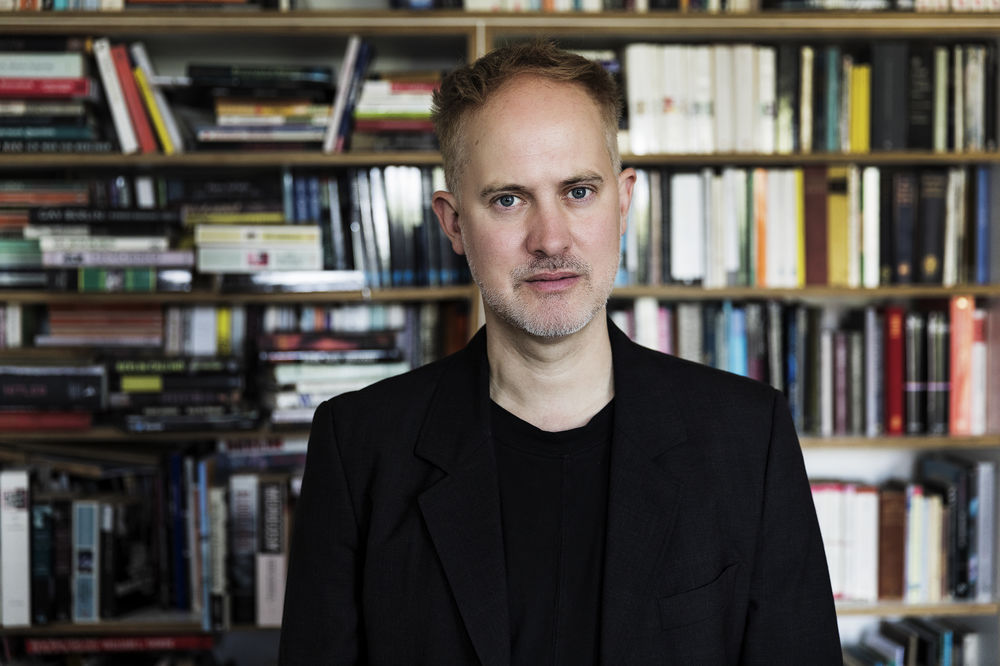
Archive
September 2021
»LOVE« Stripped Down
Alexander Zeldin at FIND 2021
September 2021
Two Absent Artists at the Schaubühne
An Interview with Kirill Serebrennikov about »Outside«
August 2021
Oedipus, but not a Rewriting
| Page 2 of 10 pages |
